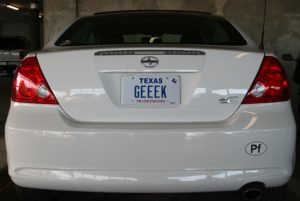Economist Kevin A. Hassett offers an only slightly tongue-in-cheek economic analysis of halloween.
For instance:
The first law of economics [is] that lump-sum transfers are more economically efficient than in-kind transfers. If you are going to give a gift to somebody, you should just give them the money. They will be a better judge of the best way to spend it.
…
At Halloween, each house on a typical American block picks out one type of candy, and they give that exact same candy willy-nilly to everyone who shows up at the door. It’s an economic nightmare.
If you can’t change the Halloween gift-giving habits of your typical American family, he also offers a workaround:
Many schools prohibit children from taking Halloween candy onto the premises. That is exactly the wrong policy. Schools should encourage all children to bring their entire haul to school, and allow them a lengthy period to trade candies among themselves. That way, the Take 5s and the 100 Grand bars will find their way to individuals who cherish them.
I love it. I can’t wait for his Valentine’s Day analysis.


